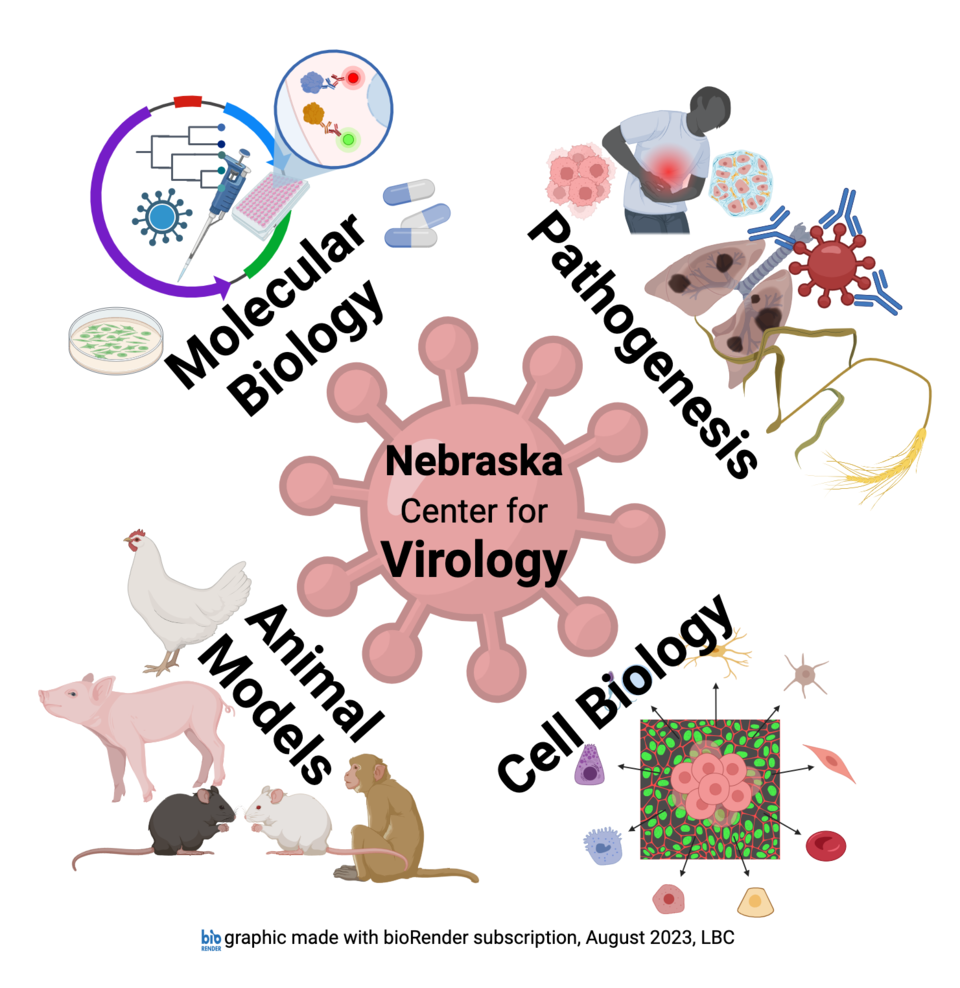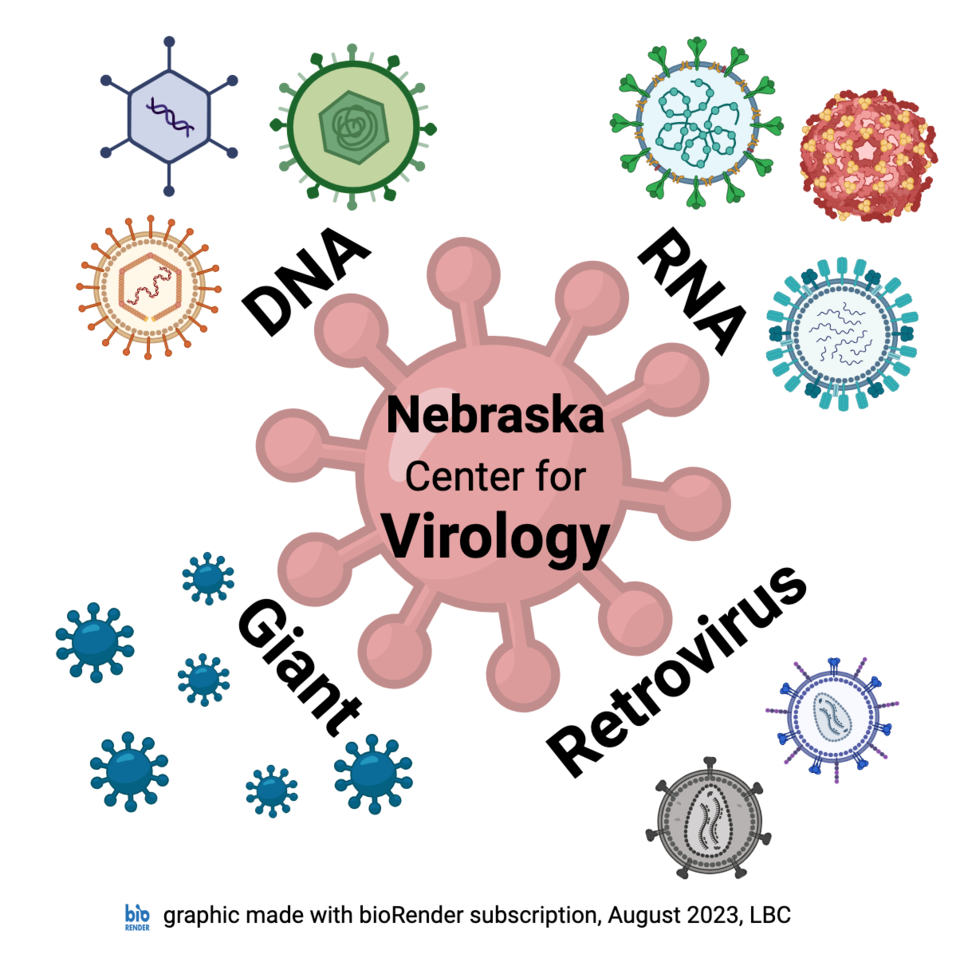Our Research

Our research programs investigate the pathogenic and therapeutic aspects of some of the most devastating viral infections worldwide, using molecular, epidemiological, and biochemical approaches to explore fundamental questions. We study how human, animal, plant, and environmental viruses enter, assemble, replicate, and establish their lifecycles, including latency and reactivation, and cause disease. We also work on novel approaches to detection, prevention, and treatment of these pathogens.
Our Research Methods & Tools

Our research approaches span fundamental molecular and cell biology, animal models for in vivo studies, and mechanisms of pathogenesis. Labs at NCV combine cutting-edge technologies with traditional molecular virology to address unique scientific questions in collaboration with other groups and core facilities across universities and research subfields.
Our Viruses

Research at NCV covers many aspects of virology, focusing on viruses that infect animals, humans, and plants, as well as those of environmental concern. Active areas of investigation include flaviviruses, giant viruses, HIV, human beta- and gamma-herpesviruses, human papillomaviruses, influenza, porcine respiratory viruses, poxviruses, and others.